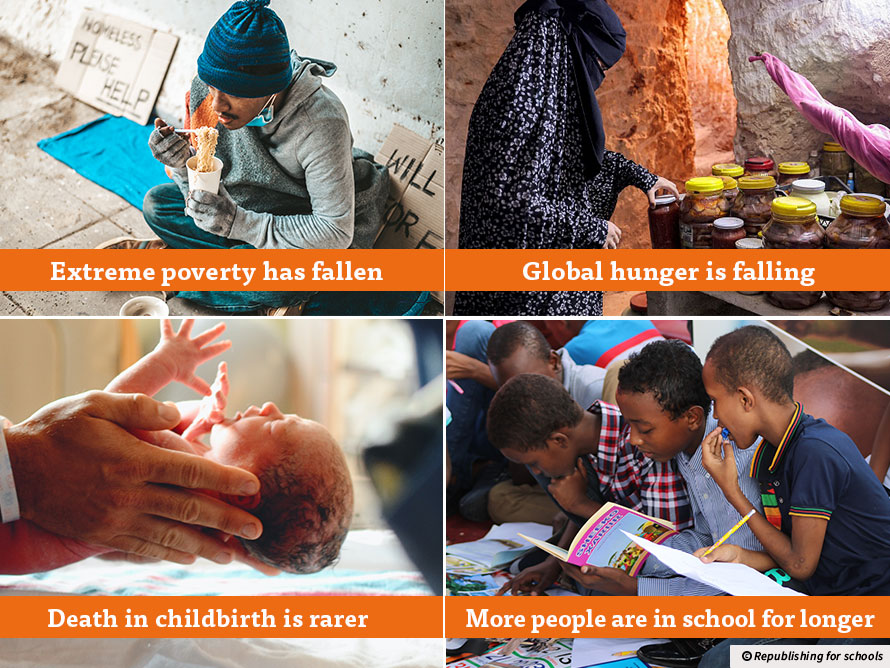Are we missing the truth? The headlines are full of horror, doom and gloom. Some experts say there is plenty of positive news, but we're hardwired to focus on the bad.
The good news that nobody wants to read
 Bright side: Experts say we must not forget that many things are "getting better".
Bright side: Experts say we must not forget that many things are "getting better". Glossary
Ecosystems - Complex networks of living things that rely on each other to survive.
Hans Rosling - Swedish physician, academic, and public speaker (1948-2017).
Stone Age - A prehistoric age in which stones were used as tools. It ended around 4,000BC, when metal began to be used instead.
